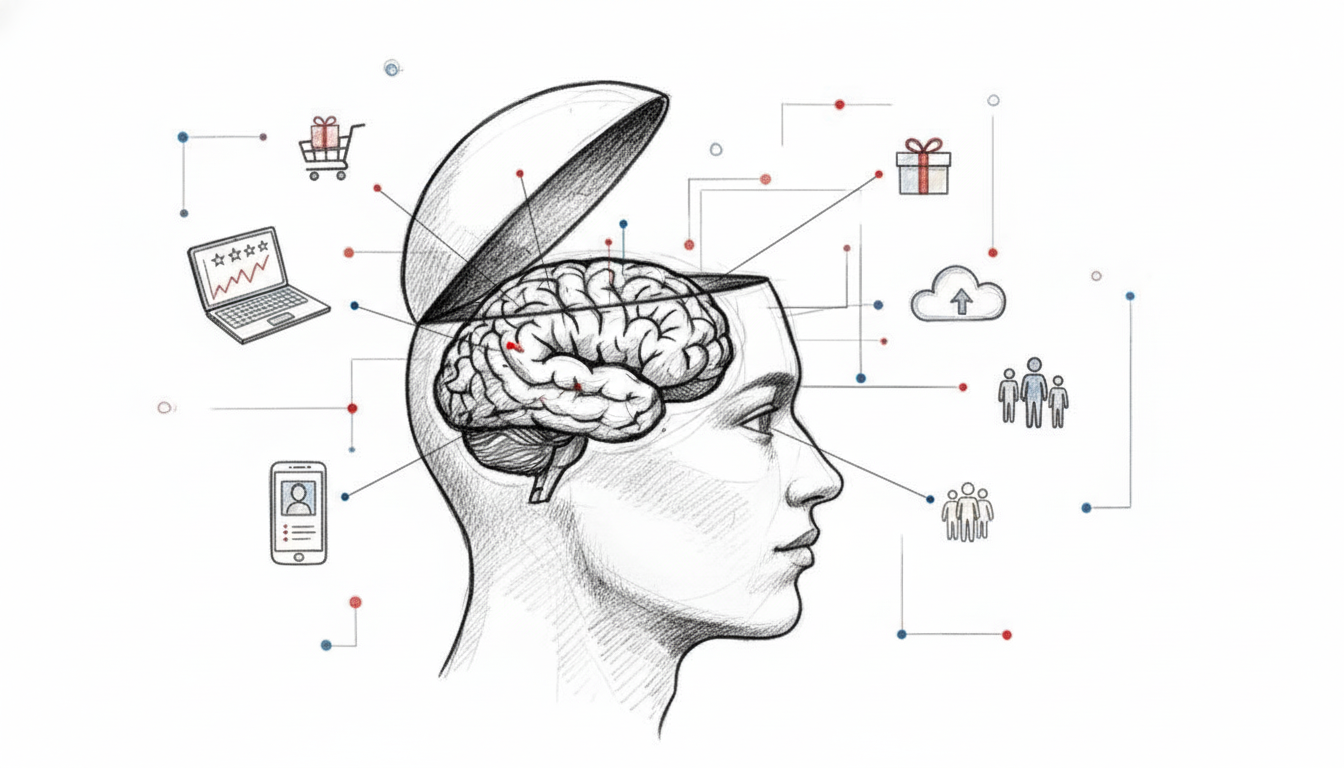AI Hyper-Personalization: Redefining Customer Experience
Explore how AI-driven personalization is transforming ecommerce experiences, enhancing customer engagement, and driving smarter business growth through strategic AI consulting.

Personalization has always been at the heart of exceptional customer experiences. From shopkeepers remembering regular buyers to modern businesses tailoring digital recommendations, the desire to connect meaningfully with customers has never changed. What has changed, however, is the scale and sophistication required to deliver personalization in today’s digital-first world. With millions of consumers interacting across platforms, traditional methods fall short. This is where AI personalization becomes a game-changer.
AI personalization enables businesses to deliver experiences that feel tailored to each individual, not just a demographic segment. It involves analyzing massive amounts of customer data, identifying behavioral patterns, and using intelligent algorithms to predict preferences and needs. Whether in ecommerce, finance, healthcare, or entertainment, AI-driven personalization is no longer a luxury; it is fast becoming a business imperative.
In this blog, we will explore how AI personalization is reshaping customer experiences, the challenges and opportunities it presents, real-world AI use cases, and the critical role of expert AI implementation partners in ensuring its successful adoption.
Why AI Personalization Matters
Today’s customers expect seamless, relevant, and engaging experiences. Many of the consumers expect personalized interactions, and become frustrated when they do not receive them. AI personalization bridges this gap by allowing businesses to anticipate needs, recommend the right products, and communicate with the right message at the right time.
Unlike static segmentation, AI can process real-time data streams and adjust strategies on the fly. For instance, in AI in ecommerce, personalization engines powered by machine learning drive product suggestions, dynamic pricing, and targeted promotions. This not only improves sales conversions but also deepens customer trust and loyalty.
Key AI Use Cases in Personalization
AI personalization is not confined to ecommerce alone. Across industries, it unlocks transformative opportunities. Here are some of the use cases:
Ecommerce Recommendations
AI models analyze browsing history, purchase behavior, and even micro-moments such as clicks and dwell times to recommend products with high relevance. Personalized landing pages and shopping carts have been shown to boost revenue significantly.
Customer Service Chatbots
AI-powered chatbots offer customized responses based on previous interactions and sentiment analysis. This level of personalization makes customer support more human-like and efficient.
Content Personalization
Media platforms use AI to recommend shows, articles, or music tailored to user preferences. This enhances engagement while keeping users within the platform ecosystem.
Workflow Automation
AI also personalizes internal workflows by automating repetitive tasks. For example, sales teams receive prioritized leads based on predictive models, enabling them to focus efforts on the most promising opportunities.
Learn how to facilitate AI integration and personalization in different industries from industry specific strategic reports.
The Role of AI Cocreation
One of the most exciting developments is the concept of AI cocreation, where businesses and AI systems collaborate to design personalized customer experiences. Rather than relying on pre-set rules, cocreation allows AI to learn continuously from human input and real-time data. For example, a marketing team can fine-tune an AI-powered campaign engine, while the AI dynamically adjusts targeting strategies. This synergy creates a cycle of constant improvement and adaptation.
Challenges in Implementing AI Personalization
While the potential is immense, businesses often face hurdles in execution. Some common challenges include:
Data Silos
Businesses often operate with fragmented data stored across multiple platforms. Without unified and high-quality data, personalization models struggle to deliver accurate insights. This makes integrating data systems a top priority.
Privacy Concerns
As personalization becomes more advanced, consumers are increasingly concerned about how their data is used. Balancing personalization with compliance to regulations such as GDPR or HIPAA requires transparency and careful data governance.
Complex AI Models
Building and managing sophisticated AI models requires specialized expertise. Without it, personalization efforts may remain limited to surface-level solutions that fail to drive real impact.
Scalability
As businesses expand across regions and platforms, ensuring consistency in personalization becomes harder. AI systems must adapt to diverse cultural expectations, regulatory environments, and product offerings while maintaining accuracy.
This is where partnering with an AI implementation partner becomes critical.
Partnering for Success: The Role of Experts
To overcome these challenges, many organizations rely on external expertise. An experienced AI consulting team brings the knowledge and tools required to make personalization scalable, ethical, and impactful.
Through AI strategy consulting, businesses can define a roadmap that aligns personalization goals with broader objectives. AI roadmap services help identify high-impact opportunities, sequence them for phased implementation, and ensure measurable ROI at every step. Meanwhile, AI automation services streamline both customer-facing and back-office processes to support personalization at scale.
Working with the right AI implementation partner ensures that organizations can avoid costly mistakes, accelerate deployment, and build personalization systems that deliver long-term value. Choosing partners with proven industry expertise makes a significant difference in ensuring success.
Future Outlook: AI Personalization as a Standard
As AI technologies mature, personalization will shift from being a differentiator to a standard expectation. For businesses, the challenge will not only be adopting AI personalization but doing it responsibly, transparently, and inclusively. The integration of generative AI into personalization strategies will add new layers of creativity, allowing companies to craft hyper-tailored messaging and product experiences.
Organizations that start building robust personalization frameworks now, supported by expert guidance and a clear AI roadmap, will be better positioned to thrive in a highly competitive market.
Conclusion
AI personalization is redefining customer experience across industries. From ecommerce recommendations and workflow automation to dynamic content delivery, it empowers businesses to meet rising customer expectations with precision and agility. However, unlocking its full potential requires a thoughtful approach supported by the right expertise.
Partnering with experienced AI consultants ensures businesses can design effective strategies, manage data responsibly, and implement scalable personalization systems. If your organization is ready to embrace hyper-personalization and transform the way you engage with customers, our team is here to help.
Let’s talk to explore the right AI personalization strategy for your business and start building customer experiences that truly stand out.



